Everyone has a point of view.
4. “Why are we here?” City Slickers is a “dramedy” about male, mid-life crisis identifying the lesson that humans are made for “one thing”. It is up to us to find out what it is. Matrix Reloaded engages cause, choice, and meaning. Morpheus preaches just before the final conflict in the film,
“All of our lives we have fought this war. There are no accidents, no chance…I believe in providence, purpose, fate, destiny…the very meaning of our lives…” One character asks, “What if you’re wrong?” Morpheus responds, “What if the prophecy is true? Isn’t that worth fighting and dying for?”
About Schmidt is a sad tale about a man who is recently retired trying to find reason and purpose in life. Movies make us ask what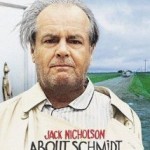 impact our their lives have made and if we have found worth in our purpose.
impact our their lives have made and if we have found worth in our purpose.
5. “How do we know anything?” The Book of Eli argues that a never-ending pursuit of “the book” is about whether we internalize revelation. Ben Kingsley’s character in Sneakers proclaims
“It’s all about the information. What we see. What we hear. It’s all about the information!”
But who manipulates the information may be the more important question pursued in films like The Conversation and Enemy of the State.
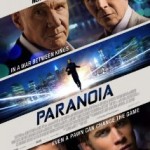 Paranoia addresses the issue, “Does knowledge create advantage?” Can Inception’s secret knowledge impact behavior, relationships, perspectives, while altering history? The Debt explores whether “secret” knowledge is ever so secret.
Paranoia addresses the issue, “Does knowledge create advantage?” Can Inception’s secret knowledge impact behavior, relationships, perspectives, while altering history? The Debt explores whether “secret” knowledge is ever so secret.
Is the information we seek, selective knowledge? Do we only believe what we want to believe? Or, are there other forces at work? Such questions are raised in a film like The East. Where we learn, from whom we learn, what we learn shapes us and our point of view.
6. “What is right or wrong?” On the Waterfront examines both ethics and what we do with them. Does  evil win if good men do nothing? What if the fight of a lifetime is not fought with punching fists but standing feet? Does Karl Malden’s preaching on the docks plant seeds which move men to action? Can one small act overcome a lifetime of mediocrity?
evil win if good men do nothing? What if the fight of a lifetime is not fought with punching fists but standing feet? Does Karl Malden’s preaching on the docks plant seeds which move men to action? Can one small act overcome a lifetime of mediocrity?
A Simple Plan is much more direct: ethical choices are a matter of life and death. Quiz Show wonders aloud why a wrong is wrong for one, but not another. Movies do us good when we begin to question our own ethics.
7. “What happened in the past?” We all know that history can be twisted toward the advantage of the one telling the tale. But movies based on history can also be stark reminders. Some events in the past should never be forgotten so that those events are never repeated.
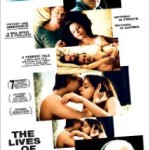 The Lives of Others shows what happens in a society under the control of tyrants. The Boy in the Striped Pajamas uses children to persuade us just how awful tyranny can be. Amistad is stark in its representation of what is reprehensible while reminding us that there are always those who will speak up for those who cannot speak.
The Lives of Others shows what happens in a society under the control of tyrants. The Boy in the Striped Pajamas uses children to persuade us just how awful tyranny can be. Amistad is stark in its representation of what is reprehensible while reminding us that there are always those who will speak up for those who cannot speak.
8. “What happens when we die?” My mom has always asked that she receive her flowers before she dies, not on her casket. My sister and I have complied with that wish for years. We are not always anxious to remember our mortality, but movies compel us to consider flower requests.
Get Low gets after my mom’s request: tell me a story about my life while I am alive. Afterlife is wed with our emotions in movies like Ghost or with our desire to cross over and back in Flatliners. Final Destination 2 opens its depiction of death with a straightforward debate, “Is there life after death and if so are we concerned about death now?”
like Ghost or with our desire to cross over and back in Flatliners. Final Destination 2 opens its depiction of death with a straightforward debate, “Is there life after death and if so are we concerned about death now?”
Departures (Yôjirô Takita, 2008) wonders what funeral arrangements might teach us about how to live now. The Sixth Sense is famous not only for its grand slight-of-hand but how we may be haunted by those who have gone before. We will all die. The only question left to answer is “How shall we prepare?”
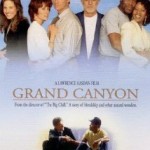 Prepared or not, Simon’s statements should make us think
Prepared or not, Simon’s statements should make us think
“You realize what a joke we people are. You feel small.”
Movies mirror a point of view, a statement of belief. Grand Canyon is an important film of the 1990’s about what controls life. According to Lawrence Kasdan’s Grand Canyon, luck and chance dictate everything. Humans have little control. This last statement allows us to discuss true Truth.
Mark has been teaching his students the eight worldview questions since the 1980’s. But the questions have been haunting humans ever since Genesis. Dr. Mark Eckel now has opportunity to train the trainers at Capital Seminary and Graduate School.
Image credits: City Slickers Sundayeducation.com; About Schmidt, Paranoia, On the Waterfront, The Lives of Others, Get Low, Grand Canyon, imdb.com;

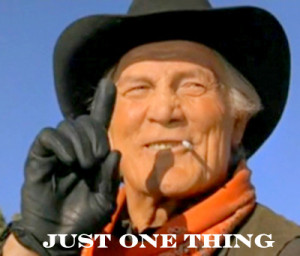
There is always a message in art. Whether it is a painting, a song, or a story (literature or film), there is always a message.
It is helpful that you move through this article (Part One and Two) point by point, providing examples for each. It’s an effective way not only to summarize the kinds of messages found in movies but also examples for us to go to.
Have you ever seen the movie Season of the Witch, featuring Nicholas Cage? I love the movie. It wrestles with questions about God’s benevolence, goodness itself, and the nature of evil. It confronts the evils done in the Crusades and even in the hunting of witches. But there are strong messages in the movie, and I think that these are good messages. The exaggeration of them aside, innocent people did die in the witch hunts. But in Season of the Witch, sometimes witches really ARE successfully captured and executed, lest they do great harm and evil. And while evil is strong and there is a great amount of injustice in the world, good ultimately triumphs over evil in the end. Christians should be uncomfortable when the Crusades are confronted, when questions are asked. I think it is good for us.
My father-in-law hates that movie. But he loves movies like Brave, Megamind, and Ice Age. He says that Season of the Witch is evil. I have debated with him about this, but he cannot see the messages in Season of the Witch. The dark tone of the movie is simply too much for him.
Nevertheless, I must ask: which movie is more harmful? Is it not possible that the secular, humanist messages found in innocent cartoon movies might be more harmful than theistic themes found in a dark, gritty, and at times gruesome, live-action film?
It’s not about what the package looks like. It’s about what’s inside.